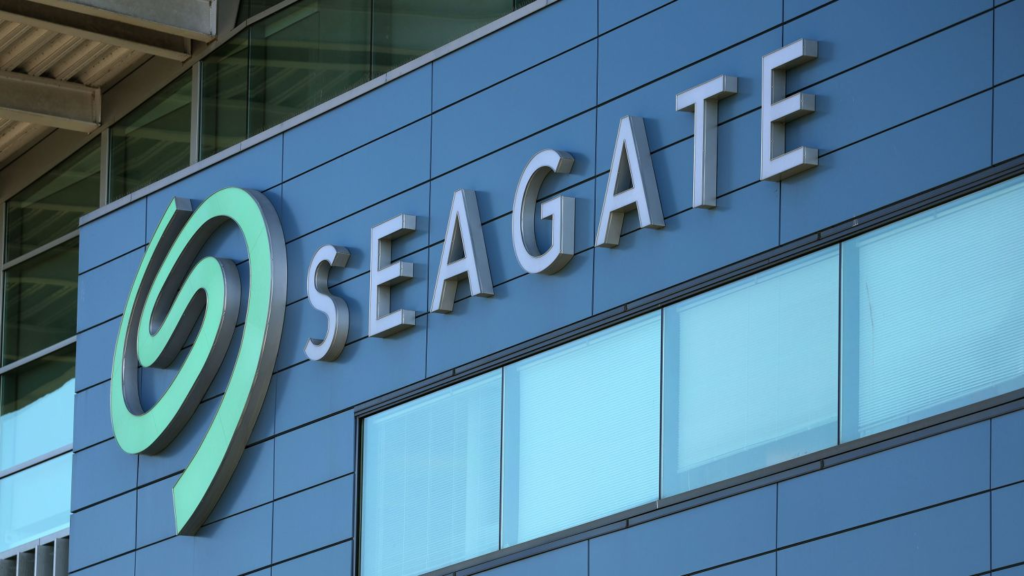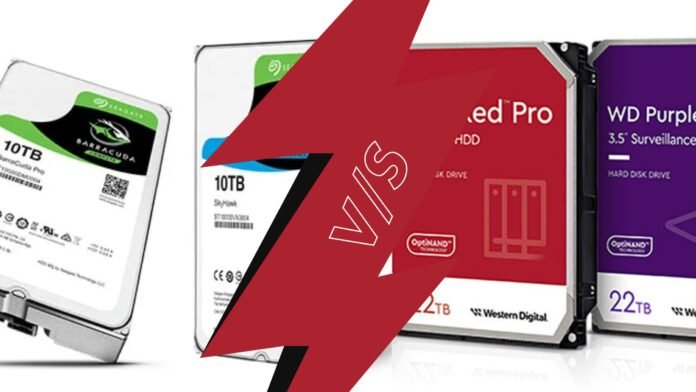When it comes to external hard drives and internal hard drives, there are no two entities larger in the game than Seagate and Western Digital (WD). Both have been major manufacturers since decades past and continue coming out with reliable storage solutions for personal and professional use. But if one has to choose Seagate or one has to choose WD, which one would it be? Hop into the aspects that set apart these two elephants, determining between them through performance, reliability, and pricing.
1. Performance: Speed and Durability
Their top performance solid-state drives have a higher burst in performance than their disk drives. WD or Seagate can be the best option under budget for the need:
Seagate:
The Seagate hard disk is known for its expeditious performance, especially the Barracuda and FireCuda series from this company. Of the two, the FireCuda drives offer a hybrid solution, featuring traditional HDD combined with SSD cache, improving start-up and access to data. The disk also allows for higher capacities by any drive, be it Seagate, thus providing more space for users who need a considerable amount of storage, especially with its Exos series intended for enterprise purposes.

- Strengths:
- Good speeds for both internal and external drives.
- Hybrid drives available (FireCuda) that combine HDD and SSD speeds.
- Larger storage capacities for specific models.
Western Digital:
Some of the standout range from Western Digital include the WD Blue and WD Black, particularly among the high-end models, which beg at least toward having a reputable performance most of the time. The most direct niche marketed here is for gamers, including power users as well. WD targets the WD Black series at them because of some relatively sophisticated high performances that these possess. They generally come with such a big cache size running at very high rotational speeds, making the recording and reading of data quite fast. WD offers WD also has some hybrid models under its WD Red line to serve as devices for the increasingly becoming popular Network Attached Storage (NAS) systems. Here focuses more on reliability and less speed.

- Strengths:
- Solid and consistent performance across most models.
- Drives tailored for gaming, NAS, and other power-intensive tasks.
- Reliability and durability are highly emphasized, especially in the WD Red line.
2. Reliability and Durability
Availability is a huge issue when looking for the best hard drive to go after. The last thing you would ever want to occur is lose all your essential data as a result of using a bad hard drive. Both Seagate and WD have strengths in as far as reliability is concerned, but there are editions for everything and the readers would kindly remind in terms of that.
Seagate:
Over time, Seagate drives have had their ups and downs, having faced an increased incidence of reported issues in the past with regards to drive failure than its main competitors. But things have changed over the years, and the latest models released by the company, such as its Barracuda and IronWolf series, are considered to be stable. Their drives are said to have the ability to carry out read/write cycles with remarkable ruggedness-one can count on them even at work of that nature in the enterprise.
- Strengths:
- Good for heavy-duty and enterprise-level use.
- Some models have been designed with long-term reliability in mind.
Western Digital:
Imply that WD Red series is more reliable for longevity and a minimal failure rate compared to Seagate. For this reason, it recognizes driving functionality through NAS systems that should work flawlessly 24/7. Relatively, Western Digital drives exhibit less failure than drives by Seagate. This is the case, for instance, among the consumer drives in the WD Blue series.
- Strengths:
- Very reliable in consumer and NAS drives.
- Strong reputation for consistent performance over time.
3. Price: Which One Offers More Value for Money?
One of the things brands usually make customers compare on is the price. Seagate is generally known for its increasing efforts concerning its prices. It largely signifies that users profit much from it when they buy it earlier than larger disk drives. That’s why it is the best purchase for anyone on a tight budget or with access to a lot of storage at a relatively lower price.
Seagate:
Seagate’s hard disk market is full of inexpensive discs for the high data savers. Barracuda is the most commonly used model. Also, IronWolf is typically included within a comparable category and, surprisingly, has significant capacity above the Barracuda series.
- Strengths:
- More affordable for large storage needs.
- Price-to-performance ratio is often more favorable for large capacities.
Western Digital:
Yes, premium WD models are more toward a higher end price point, i.e., the WD Black and WD Red, as perfect examples. This makes premium WD models relatively higher in pricing to benefit from the reputation and equality. Thus, WD premium pricing does get more extended as products get higher investments due to reincarnated form.
- Strengths:
- Slightly more expensive, but justified by higher reliability and premium features.
- Great options for gaming and professional workloads.
4. Software and Features
Both Seagate and Western Digital offers some software tools to help you manage and optimize drives, but WD is known for offering more holistic software support for users.
Seagate:
The Seagate Corporation caters the SeaTools self to monitor the health and performance of one’s drive. Seagate also includes the Seagate Toolkit which includes a backup option, drive cloning, and other features.
- Strengths:
- Basic utility and backup software are available.
- Offers drive management tools for users.
Western Digital:
Furthermore, Western Digital has software called WD Access, which is the app that manages the drive. The software provides the ability to share drives over the Internet. Among its competitors, the software is being praised for its simplicity and speed most especially in comparison with Seagate’s offering.
- Strengths:
- More comprehensive and user-friendly software options.
- Better suite of backup and drive health tools.
5. Conclusion: Which Should You Choose?
In the end, your choice would be solely down to your very specific needs and priorities.
- Choose Seagate if you’re looking for:
- Cheaper price for high overall capacities, allowing economical budgeting.
- Does not show noticeable improvements in hybrid hard drives and doesn’t appear effective for those using digital media for high performance.
- Enterprise or high-transaction options in storage.
- Choose Western Digital if you prioritize:
- You can rely on the product to perform effectively over the long term and to have high reliability against breakage.
- Top models catered to gaming household would be those from WD Black series and others specifically designed for NAS would be branded WD Red.
- To back it all up is excellent software for better protection and storage solutions all that along with user-friendly experience.
Seagate and WD offer competitive options for those making storage decisions, each with its own advantages. When establishing your specific requirements, such as speed, reliability, size, and cost, it will most likely be discovered that storage demands will be satisfied by either a Seagate or WD hard drive.



